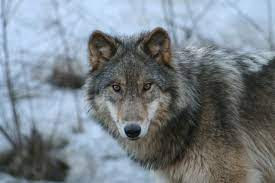
twitter • facebook • website • instagram

What Keeps Vermont Up at Night
A recent study of a random selection of patients at the Community Health Center of Vermont in Burlington examined how well Vermonters sleep. Seven of the 30 respondents reported having a formal diagnosis of sleep apnea and about half (16/30) reported having trouble falling asleep at least several times each week. The most common barriers to sleep included the use of electronics in the sleep environment (60% ), caffeine use and co-sleeping arrangements. Other high barriers included insomnia due to COVID-19 worries and financial concerns.

Prescription Drug Disposal
A study about prescription medication found that only 56% of Vermonters surveyed were aware of the states’ drug take-back programs, which are designed to stop prescription opioid-related deaths. Disposing prescription medication by flushing it down the toilet or sink can cause contamination of surface and ground water. Disposal sites for prescription drugs are located all over Vermont, and are important resources to prevent opiate-related deaths and environmental damage. A list of disposal sites in your area can be found here as the nation recognizes National Prescription Drug Takeback Day Saturday, April 27.

Cambrian era fossils
Geologists thought they had extracted all Cambrian era fossils in the Parker slate belt in Vermont in the 1800’s but new beds have recently been found, according to a recent study. Over time, the Parker Quarry site has experienced metamorphosis as it has been continually exposed to the elements. Rocks above the slate have eroded to the point that slabs of slate could be excavated. These slabs were as long as 1.5 m, and contained trilobite fossils, an extinct arthropod from the Cambrian period, 545 million years ago. These trilobites were first discovered by Noah Parker in 1855, but this recent geologic activity has unearthed slabs containing intact trilobite molts, indicating that millions of years ago, the seafloor was more favorable to life than previously thought.

The Ecological Role of Wolves
Wolves play a critical ecological role and the impacts on local systems after the population was eradicated in the Northeast led to a number of changes. The hunting community, along with other outdoor recreationists, have a strong influence when it comes to decision-making about natural resource policies. In this study, researchers aimed to develop a better understanding of hunters’ feelings about wolves. The findings showed that many hunters had negative perceptions about wolves and their impacts on the region. When hunters were made aware of the ecological role that wolves play, however, these feelings were reversed.

Working Conditions on Dairy Farms
There are several occupational and health hazards that migrant dairy workers in Vermont face at work. Bindu Panikkar and Mary-Kate Barrett examined health outcomes, occupational health hazards, and environmental risks that migrant dairy farm workers experience in Vermont based on interviews and surveys. Their findings ultimately suggested that many Vermont migrant dairy farmworkers lack sufficient protective gear and receive poor health and safety training. Reducing harmful practices and exposures in dairy farms would benefit the workers as well as the agricultural systems that depend on them, the researchers found.

Local Wire Podcast Series
A new podcast — LocalWire — part of the Community News Service features the Beaver/Deceiver progam and a new painting of Alexander Twilight. Other great Vermont podcasts include Before Your Time, The Vermont Conversation with David Goodman, RumbleStrip Vermont, and, of course, Brave Little State. (Original art work by Juli Baldics).

Evaluating the PEACE Model Training Program
The PEACE framework (plan, engage, account, closure and evaluate) is a method of interviewing used in police investigations which is intended to lead to more objective and complete witness testimony. A survey of trainees who have undergone the Vermont State Police’s PEACE training program, suggest that the training taught them how to engage in interviews with witnesses more objectively and with better organization. Future studies will need to be conducted to determine whether positive results are seen in practice.

Improving LGBTQ+ Healthcare Services
A new initiative, the Vermont Diversity Healthcare Project, seeks to improve LGBTQ+ healthcare by creating an easy-to-navigate database of health professionals who have undergone a LGBTQ+ Best Practices training workshop. The idea is to match LGBTQ+ individuals with healthcare providers (physicians, mental health professionals, etc.) who they can be comfortable discussing their unique needs with. Research has shown that finding trustworthy health professionals who understand their needs is a barrier for LGBTQ+ people.

COVID-19 Vaccine Acceptance
North Country Primary Care in Newport Vermont conducted a survey of patients at three locations (South Burlington, Newport and Ridgefield Connecticut) to understand barriers to vaccine adoption. Of the survey respondents, 40 said that they would receive the vaccine, 2 said they would not receive it and 9 were unsure. The most common reason for skepticism of the vaccine was based on worries about long-term side effects.
ANY THOUGHTS? POST THEM HERE!

Vermont Dept of Health
Weekly Data Summaries
COVID Testing
Copyright © 2021 Center for Research on Vermont, All rights reserved.
The Vermont Research News is a bi-monthly curated collection of Vermont research — focused on research in the Vermont “laboratory” — research that provides original knowledge to the world and research that adds to an understanding of the state’s social, economic, cultural and physical environment. Thanks to support from the Office of Engagement at UVM.
Send your news items to Newsletter Editors Martha Hrdy, Nick Kelm, or Richard Watts. In a collaboration with VT Digger, the newsletter is now published online. CRVT is responsible for the content. The newsletter is published on the 1st and 15th of each month.

